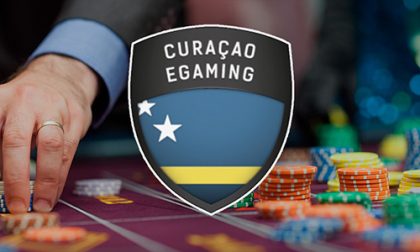The Curacao Online Gambling Regulatory Rubber-Stamp Admission
With 2018 waning, it’s time to take advantage of a slow news week to clear the queue of some interesting (if not earth-shattering) stories. Among them, perhaps the most farcical item of recent days, is Curacao’s planned expansion of the duties of its Gaming Control Board (GCB) to provide regulatory services and oversight to the dozens of online-gambling firms seeking or already sporting a Curacao-issued license.
The news was first reported in Antilliaans Dagblad, a Dutch-language outlet based in Curacao’s capital of Willemstad. The action transfers regulatory oversight for online operators licensed in Curacao from the island’s Ministry of Justice to its Ministry of Finance. The Finance Ministry already bears the regulatory responsibility for the island’s ten or so land-based casinos, via Curacao’s GCB, as a part of Curacao’s long-running tradition as a tourist destination in the Lesser Antilles.
Antilliaans Dagblad quoted Curacao’s Finance Minister, Kenneth Gijsbertha, about the shift. Gjisbertha reportedly said that one of the reasons to extend the GCB’s reach to cover online offerings is to make the GCB “a uniform regulator of games of chance” of Curacao-based gambling.
 Then the online-gambling sector comes up, with Gjisbertha saying (all this roughly translated from the original Dutch, “In the case of illegal games of chance, the fairness of the offered payment of the prizes is not guaranteed, which disadvanatges the players and seriously detracts from the international image of Curacao.”
Then the online-gambling sector comes up, with Gjisbertha saying (all this roughly translated from the original Dutch, “In the case of illegal games of chance, the fairness of the offered payment of the prizes is not guaranteed, which disadvanatges the players and seriously detracts from the international image of Curacao.”
All that about “international image” is a clear reference to Curacao’s infamous status as a purely rubber-stamp jurisdiction. And then the Antilliaans Dagblad piece puts in black in white what everyone already knows: Under the auspices of Curacao’s Ministry of Justice and its Curacao eGaming licensing entity, formerly called the Curacao Gaming Commission, “Up to now there has been no specific supervision of online gaming, or internet casinos.”
Say it ain’t so, Curacao! You mean all you’ve done for 20 years is offer a licensing haven serving the lowest common denominator of would-be online operators, without care or concern for the customers of those operations? Note that all this admission of stuff doesn’t mean that every operator claiming Curacao licensing is a fraud, but there’s a significantly heightened risk involved, especially for novice online gamblers. A Curacao license has always meant caveat emptor in the online world.
Given the increased international pressure being placed on online regulators, it’s not that surprising to see Curacao making what can only be described as a late, lamented bid for respectability. That assumes, of course, that once the shift of online oversight and Curacao eGaming moves over to Gjisbertha’s Ministry of Finance, that Curacao stops turning a deaf ear to complaints.
Curacao’s online-gambling framework has thumbed its metaphorical nose at the rest of the world before, but in recent years, the willingness of many Curacao-licensed operators to continue serving citizens of the Netherlands has brought return heat. Curacao, though a quasi-independent country, is still technically a Dutch domain. Just last month, for example, the Netherlands announced fines against some Curacao-based operators, but issuing the fines was far different than collecting them, or stopping the offending practices.


















COMMENTS